TIME TO THINK BLUE…
By
Oliver Steeds
“What’s that?” my 3year old niece asked me in the supermarket.
“That’s beef, it comes from a cow”, I replied.
“If that’s a cow, then why can’t we see its face? Over there, I know it’s a fish, because it’s got a face and eyes. But why can’t I see the cow’s face and eyes?”
If we had cow heads and pig heads staring out at us from the shelves we would be a little bit upset. But what’s the difference? They’re both animals but why do we care less about seeing a fish head than we would if we saw Miss Piggy smiling at us from the bacon counter? Why do people happily put live lobsters into boiling water to cook them without a crisis of conscious but if Gordon Ramsey boiled a live sheep, we’d be on the phone to the Daily Mail in minutes?
It was only at 500feet underwater, testing diving a new exploratory submarine that the answer slapped me across the face like a kiss from a crazed cod. The answer goes to the heart of not just our own health, but also the fundamental ongoing health of our species on this planet. This is more than just ‘an elephant in the room’; it’s a rabid, hungry, sex-starved angry herd of elephants in a greenhouse.
We have become catastrophically disconnected from the oceans. Take a deep breath and slowly exhale. The oceans produce the majority of that oxygen that has also kindly captured more than two-thirds of all CO2 ever produced.
Our oceans are the planet’s life-support system. They drive climate and weather, regulate temperature, shape Earth’s chemistry, and provide basic protein for over a billion people. It’s thought to be home to at least 94% of all biodiversity on our planet and yet less than 5% has ever been explored. We know more about the surface of Mars than we do about our ocean floor.
So what? Well I hope you’re sitting down before you read this summary from ‘The International Program on the State of the Ocean’ published in June 2011:
“Entire ocean ecosystems are in catastrophic collapse… occurring more quickly than had been predicted due to the combined effects of pollution, climate change and over-fishing.”
The good news is that we’re not doomed, quite yet. We have time to fix it. As the brilliant marine scientist Sylvia Earle, aka the Sturgeon General has said, “Our actions toward the ocean in the next 10 years will define the next 10,000.”
We’re not going to achieve the necessary turnaround in popular and political mindsets by slapping people round with metaphorical halibuts. As my genius, prophetic niece subtly enlightened me, we all need to see the sea differently. But how?
Enter the Re Matau, ‘The People of the Sea’, who live on the tiny atoll of Satawal, Micronesia. They remain umbillically connected to the oceans that surround them. They are the Star Navigators. They sail without sextants or charts. They don’t operate on latitude, longitude, angles or mathematical calculations of any kind. They sail using their knowledge of stars, waves and birds to guide their huge, hand-carved canoes.
They are the last of the ancient mariners. Their wisdom exists no where else on the planet, kept alive by tradition and initiation, passed from father to son, still breathing in the frail vessel of human memory. Widely scattered and barely self-sustaining on their isolated island, the Re Matau carry on a sea-going tradition that weaves myth, magic, ethics and metaphysics into a seamless web, the centre of which is navigation, the heart carried by the Palu or Master Navigator.
His training begins as a baby when his tiny body is held in tidal pools to teach him how waves and wind blow differently from place to place. Later comes the intensive memorising of the Carolinian Star Compass, learning the locations, routes and names of the stars as well as well as kapesani lang, the ‘talk of the skies’ – the art of forecasting the weather. Once initiated through the pwo, the Palu is more than just a navigator and technician, he is also a shaman. They say he thinks blue.
If we care about living, about breathing and about our health, we’ve all got to become Palus and start to think blue and remember where our lives began and how they may end. The gills of the human embryo, the same levels of salinity in our blood as seawater, and our salty sweat are all reminders to our ocean genesis. It’s time to start living the blue.
Oliver Steeds is Director of Digital Explorer and has recently launched THE OCEAN ACADEMY: http://oceans.digitalexplorer.
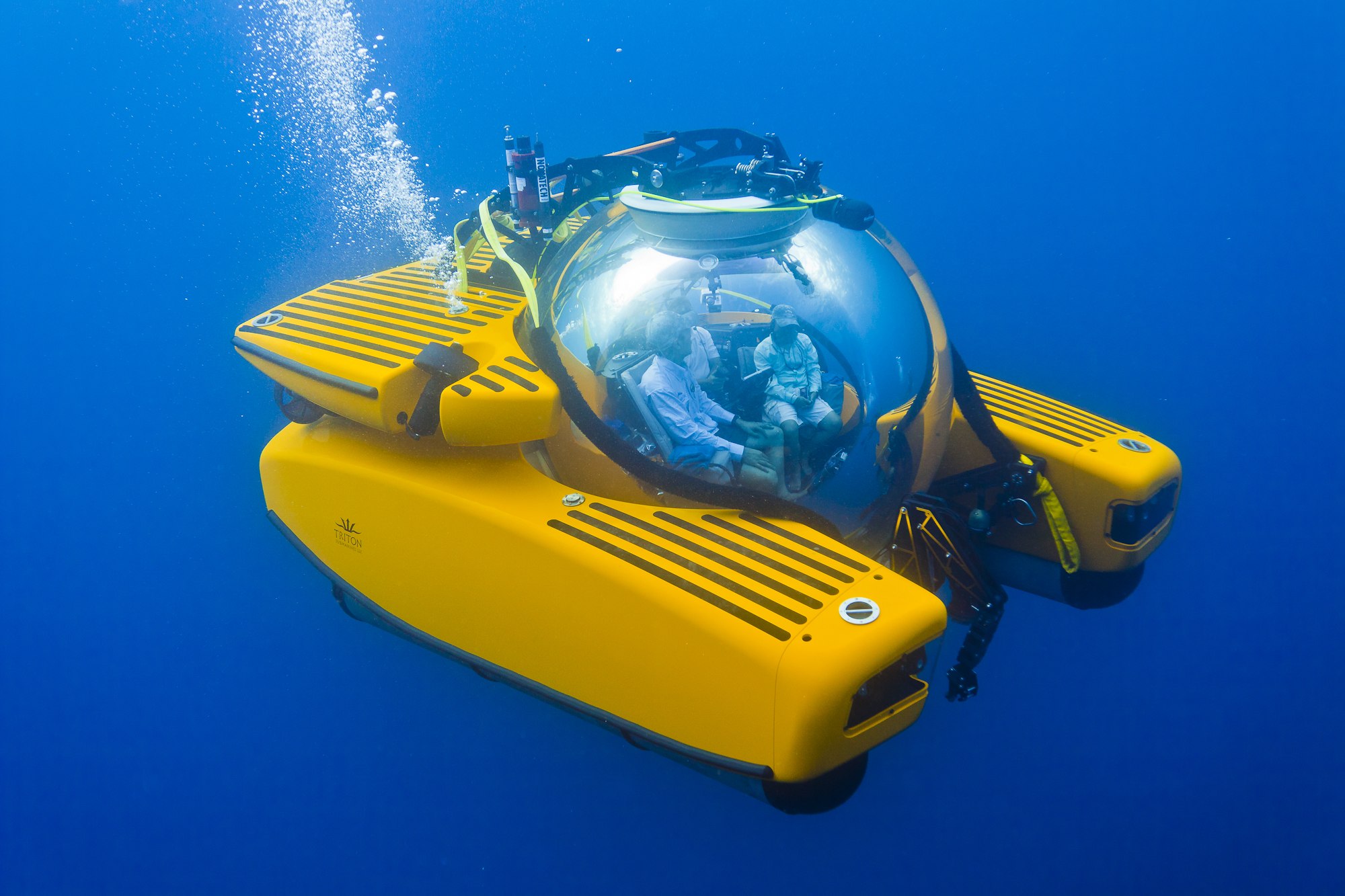
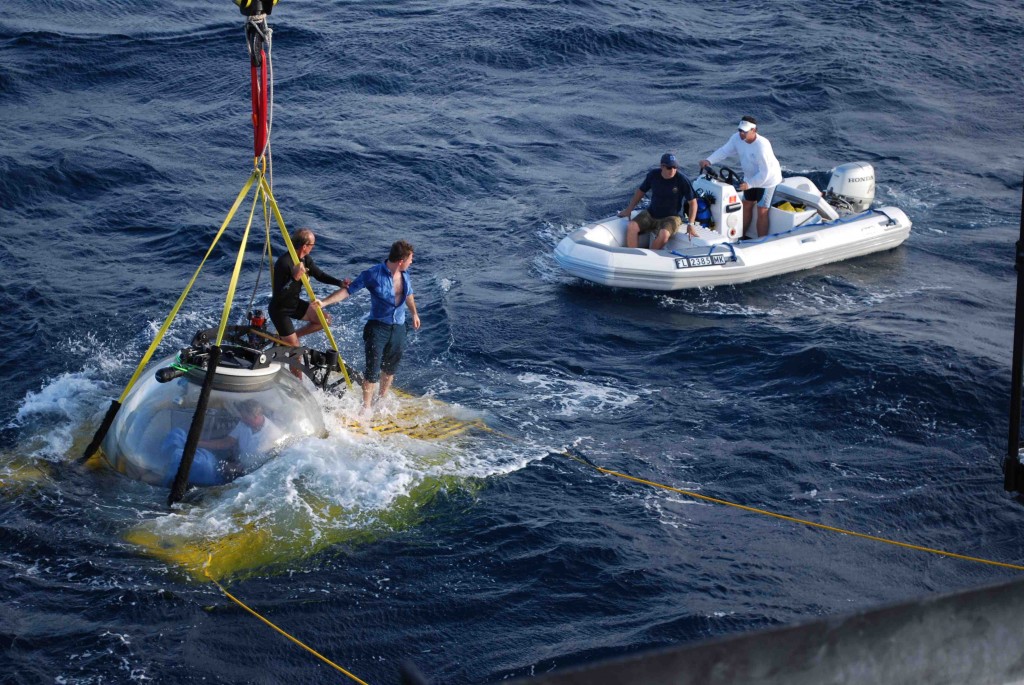
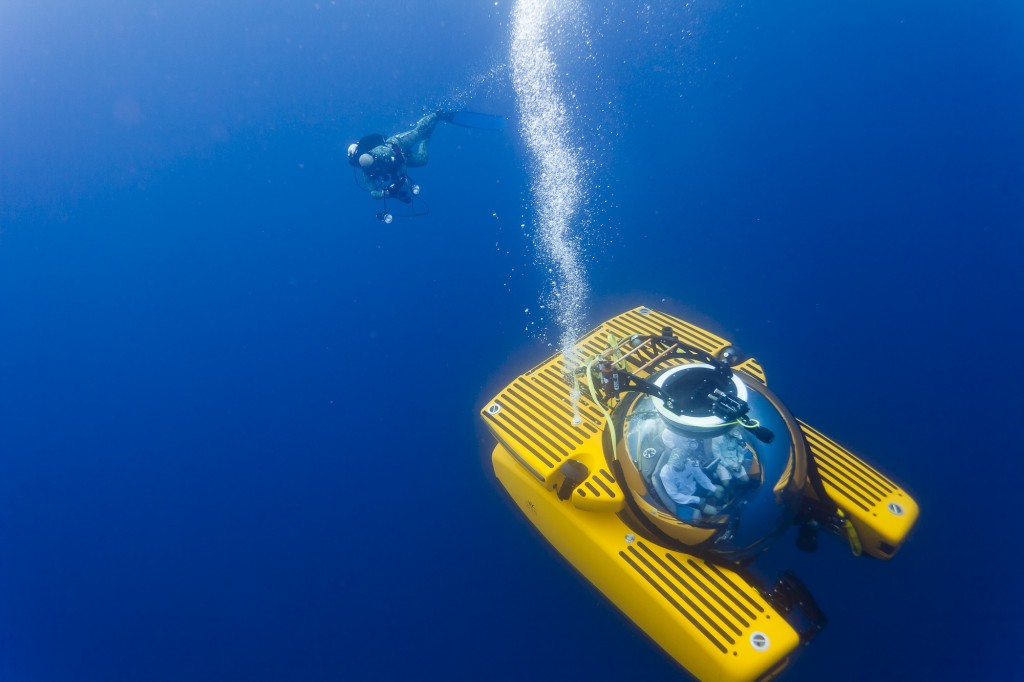
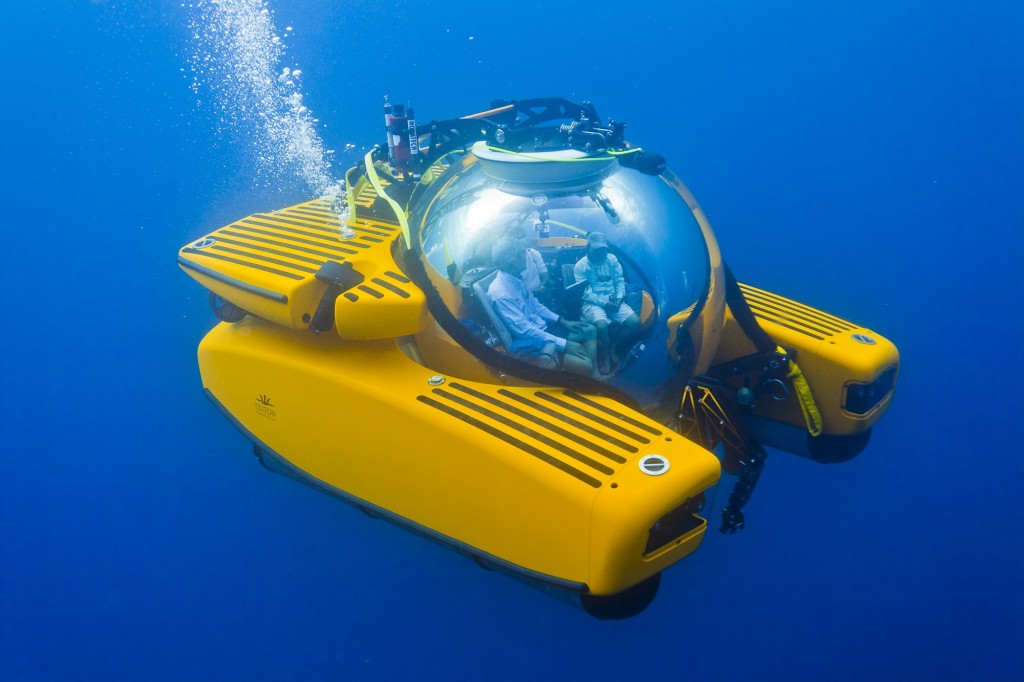

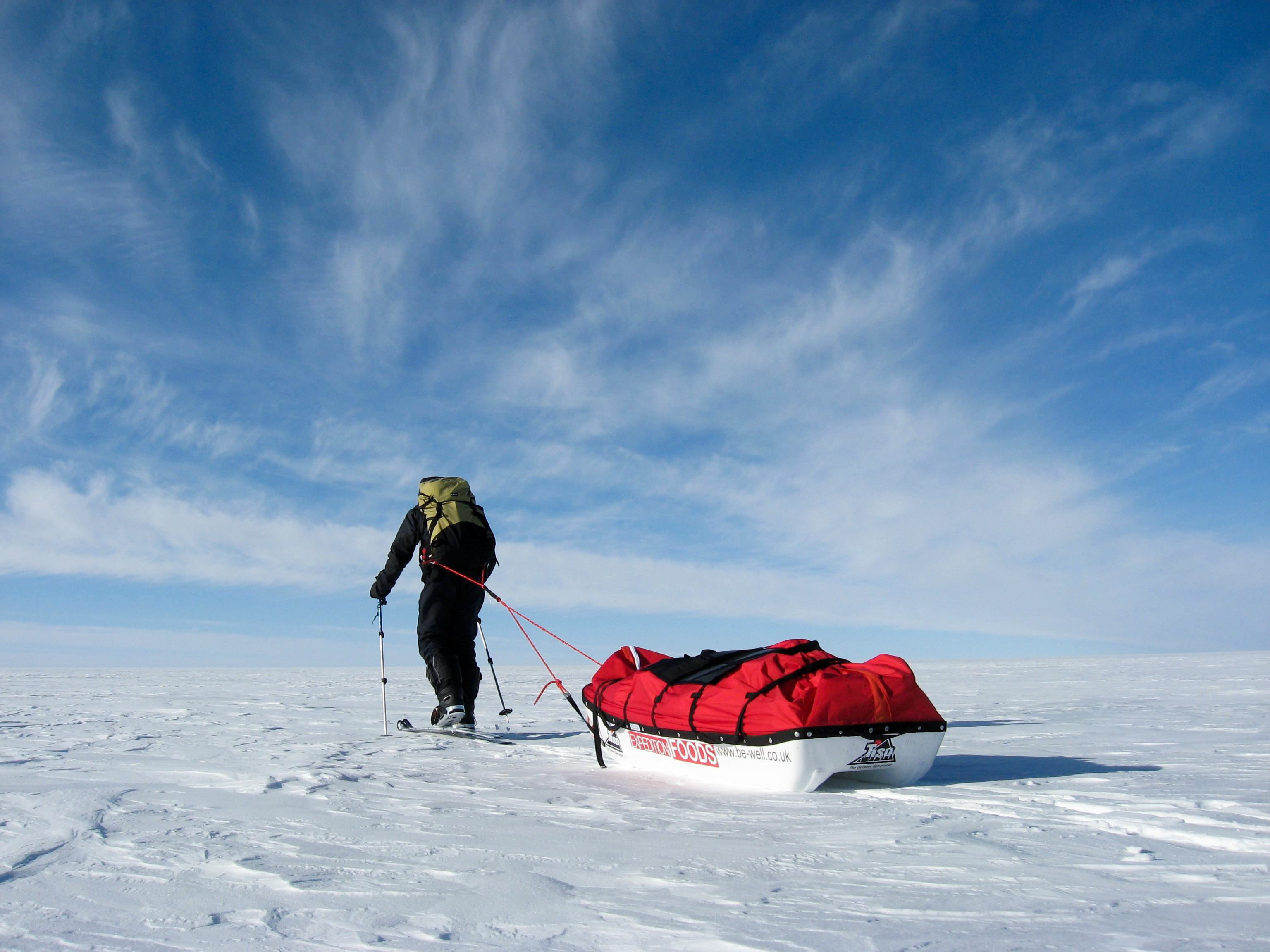
2 comments